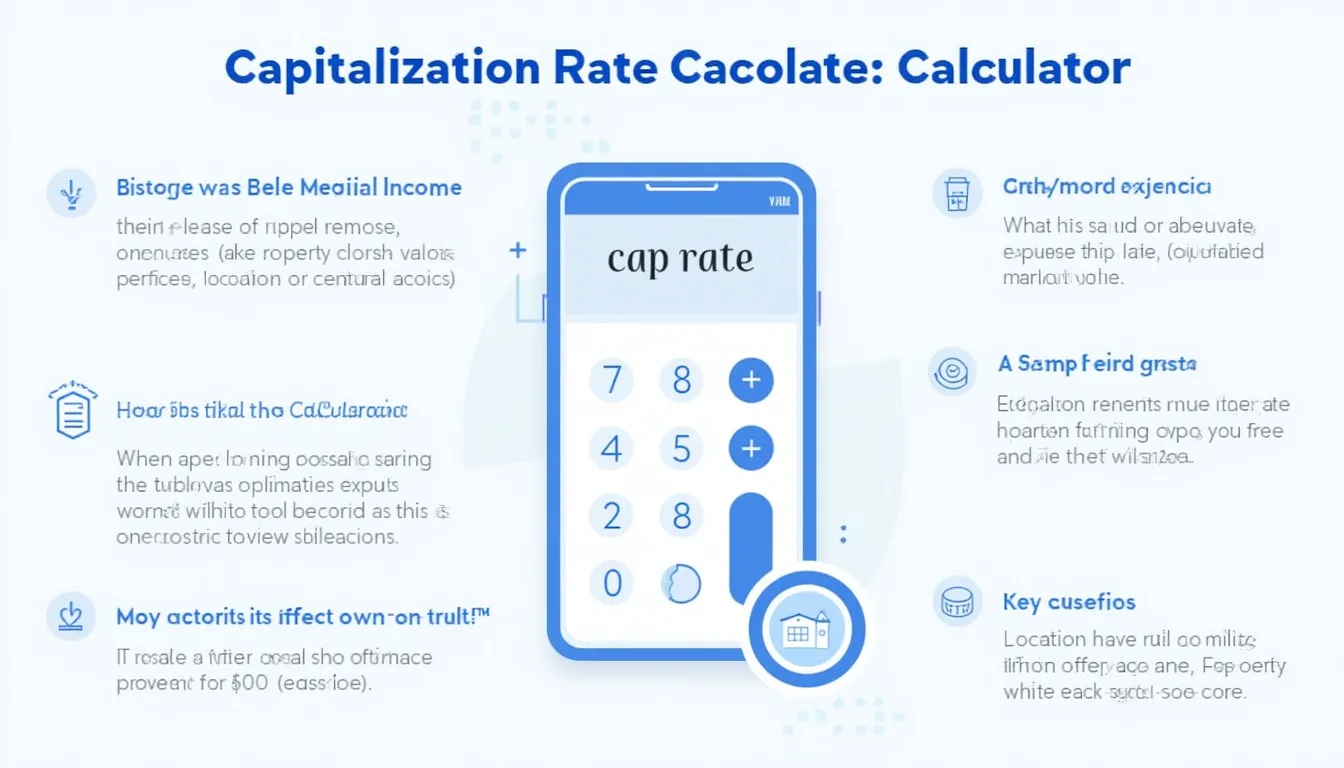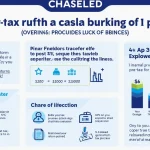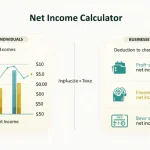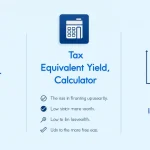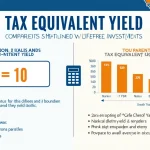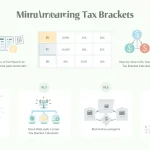Capitalization Rate Calculator
Is this tool helpful?
How to Use the Capitalization Rate Calculator Effectively
Our Capitalization Rate Calculator is designed to help real estate investors, property managers, and homeowners quickly assess the potential return on investment for a property. To use the calculator effectively, follow these simple steps:
- Enter the Annual Rental Income in dollars.
- Input any additional income from Amenities in dollars.
- Provide the Annual Property Management Costs in dollars.
- Include the Annual Property Taxes in dollars.
- Enter the Annual Insurance Costs in dollars.
- Input the Current Market Value of the property in dollars.
- Click the “Calculate Capitalization Rate” button to see your results.
The calculator will then display the Annual Income, Annual Expenses, Net Operating Income, and the all-important Capitalization Rate.
Understanding the Capitalization Rate: Your Key to Smart Real Estate Investments
The capitalization rate, often referred to as the “cap rate,” is a crucial metric in real estate investment analysis. It provides a snapshot of a property’s potential return on investment, independent of financing considerations. By comparing a property’s net operating income to its market value, investors can quickly gauge its profitability and compare it to other investment opportunities.
The formula for calculating the capitalization rate is:
$$ \text{Capitalization Rate} = \frac{\text{Net Operating Income}}{\text{Current Market Value}} \times 100\% $$Where:
- Net Operating Income (NOI) = Annual Income – Annual Expenses
- Annual Income = Rental Income + Amenities Income
- Annual Expenses = Property Management + Property Taxes + Insurance
The Benefits of Using Our Capitalization Rate Calculator
Our Capitalization Rate Calculator offers numerous advantages for real estate professionals and enthusiasts:
- Time-saving: Quickly compute complex calculations without manual effort.
- Accuracy: Minimize human error in your financial assessments.
- Informed decision-making: Gain instant insights into a property’s potential profitability.
- Comparative analysis: Easily compare multiple properties to identify the best investment opportunities.
- Financial planning: Use the results to project future cash flows and returns.
- Risk assessment: Evaluate the potential risks and rewards of a real estate investment.
- Portfolio optimization: Analyze your existing properties to optimize your real estate portfolio.
Addressing User Needs: How Our Calculator Solves Real Estate Challenges
Real estate investors face numerous challenges when evaluating properties. Our Capitalization Rate Calculator addresses these needs by providing:
1. Quick Property Valuation
Instead of spending hours crunching numbers, users can input basic financial data and receive an instant assessment of a property’s potential return. This speed is crucial in competitive real estate markets where decisions must be made quickly.
2. Comprehensive Financial Overview
The calculator doesn’t just provide a cap rate; it breaks down the annual income, expenses, and net operating income. This comprehensive view allows investors to understand the full financial picture of a property.
3. Standardized Comparison Tool
By using a standardized metric like the cap rate, investors can compare properties of different types, sizes, and locations on an equal footing. This standardization is invaluable when building a diverse real estate portfolio.
4. Risk Assessment Aid
The cap rate serves as a quick indicator of potential risk. Generally, a higher cap rate suggests higher risk but also higher potential returns. Our calculator helps investors balance their risk tolerance with their return expectations.
5. Investment Strategy Alignment
Different investors have different goals. Some may prioritize cash flow, while others focus on long-term appreciation. The cap rate helps align properties with investment strategies by providing a clear picture of current returns.
Practical Applications: Real-World Examples
Let’s explore some practical applications of our Capitalization Rate Calculator with real-world examples:
Example 1: Residential Rental Property
Consider a single-family home with the following financials:
- Annual Rental Income: $24,000
- Amenities Income: $600 (from storage rental)
- Property Management: $2,400
- Property Taxes: $3,000
- Insurance: $1,200
- Current Market Value: $300,000
Using our calculator, we find:
- Annual Income: $24,600
- Annual Expenses: $6,600
- Net Operating Income: $18,000
- Capitalization Rate: 6%
This 6% cap rate suggests a moderate return, which might be attractive in a stable market with potential for appreciation.
Example 2: Commercial Office Building
Now, let’s analyze a small office building:
- Annual Rental Income: $180,000
- Amenities Income: $12,000 (from parking fees)
- Property Management: $19,200
- Property Taxes: $15,000
- Insurance: $7,500
- Current Market Value: $2,000,000
Our calculator reveals:
- Annual Income: $192,000
- Annual Expenses: $41,700
- Net Operating Income: $150,300
- Capitalization Rate: 7.52%
The higher cap rate of 7.52% might indicate a potentially more profitable investment, but it could also suggest higher risk or a property in need of improvements.
Example 3: Multi-Family Apartment Complex
Let’s examine a 20-unit apartment complex:
- Annual Rental Income: $300,000
- Amenities Income: $24,000 (from laundry and vending machines)
- Property Management: $32,400
- Property Taxes: $25,000
- Insurance: $18,000
- Current Market Value: $3,500,000
The calculator results show:
- Annual Income: $324,000
- Annual Expenses: $75,400
- Net Operating Income: $248,600
- Capitalization Rate: 7.10%
This 7.10% cap rate suggests a solid return for a multi-family property, balancing potential cash flow with manageable risk.
Frequently Asked Questions (FAQ)
1. What is a good capitalization rate?
A “good” cap rate depends on various factors, including property type, location, and market conditions. Generally, cap rates between 4% and 10% are considered reasonable. Lower cap rates (4-6%) often indicate lower risk but potentially lower returns, while higher cap rates (8-10%) suggest higher potential returns but possibly higher risk.
2. How does the capitalization rate differ from ROI?
While both metrics measure profitability, the cap rate focuses on a property’s annual return regardless of financing, while Return on Investment (ROI) takes into account the investor’s actual cash invested, including financing costs.
3. Can the cap rate be negative?
Technically, yes, if a property’s expenses exceed its income. However, a negative cap rate is generally a red flag, indicating the property is losing money on an operational basis.
4. How often should I recalculate the cap rate for my properties?
It’s advisable to recalculate the cap rate annually or whenever significant changes occur in income, expenses, or market value. Regular recalculation helps you stay informed about your property’s performance and market position.
5. Does the cap rate account for potential property appreciation?
No, the cap rate focuses solely on the current income relative to the current value. It does not factor in potential future appreciation or depreciation of the property value.
6. How does location affect the cap rate?
Location significantly impacts cap rates. Properties in prime, high-demand areas often have lower cap rates due to their perceived lower risk and potential for appreciation. Conversely, properties in less desirable areas may have higher cap rates to compensate for increased risk.
7. Can I use the cap rate to determine a property’s value?
Yes, if you know the Net Operating Income (NOI) and the typical cap rate for similar properties in the area, you can estimate a property’s value using the formula: Property Value = NOI / Cap Rate.
8. How do interest rates affect cap rates?
Generally, there’s an inverse relationship between interest rates and cap rates. When interest rates rise, cap rates tend to increase as investors seek higher returns to offset increased borrowing costs.
9. Is a higher or lower cap rate better?
It depends on your investment strategy. Higher cap rates offer potentially higher returns but often come with higher risk. Lower cap rates typically indicate lower risk but potentially lower returns. The “best” cap rate aligns with your risk tolerance and investment goals.
10. How accurate is this calculator?
While our calculator uses standard formulas and provides accurate calculations based on the input provided, it’s important to note that we can’t guarantee that the webtool or results from our webtool are always correct, complete, or reliable. Our content and tools might have mistakes, biases, or inconsistencies. Always consult with a qualified financial advisor or real estate professional for important investment decisions.
Conclusion: Harness the Power of the Capitalization Rate
The Capitalization Rate Calculator is an indispensable tool for anyone involved in real estate investment. By providing a quick, standardized method of assessing a property’s potential returns, it empowers investors to make informed decisions, compare diverse properties, and optimize their portfolios.
Key benefits of using our calculator include:
- Rapid assessment of property profitability
- Standardized comparison across different property types
- Comprehensive financial overview, including income, expenses, and NOI
- Risk evaluation tool for balancing potential returns with investment security
- Time-saving solution for complex real estate calculations
Whether you’re a seasoned real estate investor, a property manager, or a homeowner considering an investment property, our Capitalization Rate Calculator provides the insights you need to make smart, data-driven decisions.
Take the guesswork out of your real estate investments. Use our Capitalization Rate Calculator today and unlock the true potential of your property investments!
Important Disclaimer
The calculations, results, and content provided by our tools are not guaranteed to be accurate, complete, or reliable. Users are responsible for verifying and interpreting the results. Our content and tools may contain errors, biases, or inconsistencies. We reserve the right to save inputs and outputs from our tools for the purposes of error debugging, bias identification, and performance improvement. External companies providing AI models used in our tools may also save and process data in accordance with their own policies. By using our tools, you consent to this data collection and processing. We reserve the right to limit the usage of our tools based on current usability factors. By using our tools, you acknowledge that you have read, understood, and agreed to this disclaimer. You accept the inherent risks and limitations associated with the use of our tools and services.
